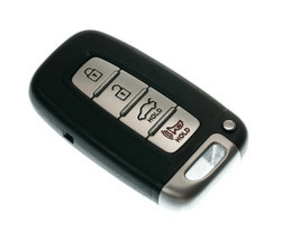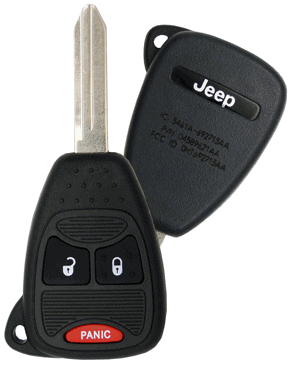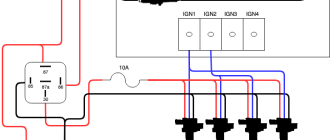
Pros and cons of smart car keys
In today’s rapidly advancing technological landscape, smart car keys have emerged as a convenient and innovative solution for vehicle owners. These keys harness the power of cutting-edge technology to provide a range of features and functionality that traditional keys simply cannot match.
One of the major advantages of smart car keys is their unparalleled convenience. With a smart key, you no longer have to fumble around in your pockets or purse searching for your keys. Instead, you can simply approach your car, and the key’s proximity sensors will automatically unlock the doors, allowing you to enter and start the engine with ease.
However, despite the countless benefits they offer, smart car keys are not without their drawbacks. Firstly, the very technology that makes these keys so advanced also makes them vulnerable to security breaches. As with any digital device, smart car keys can be hacked or cloned, potentially allowing unauthorized individuals to gain access to your vehicle.
Another disadvantage of smart car keys is their reliance on battery power. Traditional keys never run out of juice, but smart keys require a constant source of power to operate. If your key’s battery dies, you may be left stranded, unable to unlock or start your car until you find a way to recharge or replace the battery.
In conclusion, while smart car keys offer unmatched convenience and utilize cutting-edge technology, they also come with their fair share of cons. It’s important for car owners to weigh the pros and cons before deciding whether to invest in this new and exciting technology. Ultimately, the choice depends on your individual preferences, priorities, and level of comfort with the potential risks associated with smart car keys.
Enhanced Security
Smart car keys bring an added layer of security to the vehicles they control. Through their advanced technology, smart keys provide an innovative way to protect against theft and unauthorized access.
One of the key features of smart car keys is their ability to use encryption. This ensures that only authorized users can interact with the car’s locking and ignition systems. The use of encryption makes it extremely difficult for thieves to replicate or bypass the key’s signal, adding an extra level of protection for car owners.
In addition to encryption, smart keys often have built-in immobilizer systems. These systems prevent the car from being started without the correct key or key code. This feature significantly decreases the risk of hot-wiring or traditional car theft methods.
Furthermore, smart keys can offer remote access control, allowing car owners to monitor and control their vehicles from a distance. This can be especially useful in case of theft or if the car needs to be located or immobilized quickly.
While there are some potential cons to smart car keys, such as the risk of hacking or a dead battery, the enhanced security features provided by this technology outweigh the potential drawbacks. Overall, smart keys offer convenience and peace of mind for car owners by combining convenience and increased security.
Easy Accessibility
One of the key benefits of smart car keys is their innovation in terms of easy accessibility. With traditional car keys, finding the right key and inserting it into the ignition can be cumbersome and time-consuming.
Smart car keys remove this inconvenience by utilizing technology to provide seamless access to your vehicle. With a simple push of a button or even a proximity sensor, you can easily lock or unlock your car doors. This convenience is especially valuable in situations where your hands are full or when you’re in a hurry.
In addition to the ease of use, smart car keys also offer enhanced security features. Many smart car keys come with immobilizer systems that prevent unauthorized access to the vehicle. This technology adds an extra layer of protection to your vehicle and reduces the risk of theft.
However, there are also cons to consider when it comes to easy accessibility with smart car keys. One potential drawback is the risk of losing or misplacing your smart car key. Unlike traditional keys, smart car keys are often smaller and easier to misplace. If you lose your smart car key, it can be costly to replace, as they typically require programming and syncing with your vehicle’s security system.
Overall, the easy accessibility provided by smart car keys offers a range of benefits, including convenience and enhanced security. However, it’s important to be mindful of the potential cons, such as the risk of losing or misplacing your key. By weighing the pros and cons, you can make an informed decision about whether smart car keys are the right choice for you.
Convenience and Comfort
Smart car keys have revolutionized the way we access and start our cars. The technology behind these keys offers a level of convenience and comfort that traditional car keys just can’t match.
One of the main pros of smart car keys is their convenience. With a smart key, you no longer have to fumble around in your bag or pockets to find your keys. Instead, you can simply walk up to your car and it will automatically unlock as long as the key is within proximity. This hands-free feature is especially useful when you have your hands full with groceries or bags.
In addition to the hands-free convenience, smart car keys also provide a higher level of comfort. Many smart keys offer features such as keyless entry, push-button start, and remote engine start. These features allow you to easily access and start your car without having to physically insert and turn a key. This can be particularly beneficial when the weather is bad or when you’re in a hurry.
However, it’s important to consider the cons of smart car keys as well. One of the main cons is the potential for security vulnerabilities. Since smart car keys use wireless technology to communicate with the car, there is a risk of the key being hacked or cloned. This could allow someone unauthorized access to your car. It’s important to be vigilant and take steps to protect your smart key from potential threats.
Despite the security concerns, smart car keys remain an innovative and convenient technology for car owners. The pros of convenience and comfort outweigh the potential cons if proper precautions are taken to ensure the security of the smart key.
Advanced Features
The introduction of smart car keys brings numerous advanced features to the table. These features have both pros and cons for car owners, making it important to carefully consider the benefits and drawbacks before adopting this new technology.
- Pros:
- Enhanced Convenience: Smart car keys offer an unprecedented level of convenience. With features like keyless entry, owners can easily unlock and lock their vehicles without fumbling for keys. This can be especially helpful when carrying groceries or other items. Additionally, some smart keys have the capability to start the engine remotely, allowing the car to warm up or cool down before getting inside.
- Innovation: Smart car keys are part of the ongoing evolution of automotive technology. By embracing this innovation, car owners can stay ahead of the curve and enjoy the latest advancements in the industry. These keys often come equipped with additional features, such as GPS tracking or wireless connectivity with other devices.
- Increased Security: The security features offered by smart car keys are a significant advantage. Many smart keys use advanced encryption and authentication methods, making them more secure than traditional keys. They are also harder to duplicate, reducing the risk of car theft.
- Cons:
- Reliability Issues: Like any technology, smart car keys are not flawless. There have been reports of issues with connectivity and reliability, which can be frustrating for car owners. If the key fails to communicate with the car’s system or experiences malfunctions, it can become difficult to access or start the vehicle.
- Cost: Smart car keys tend to come with a higher price tag compared to traditional keys. This added cost may deter some consumers from adopting this technology, especially if they do not see a significant benefit in the advanced features.
- Compatibility: Not all cars are equipped to work with smart car keys. Older models may require aftermarket modifications in order to be compatible with this technology. Additionally, different car brands may have their own proprietary smart key systems, creating a lack of universal compatibility.
Considering the pros and cons of smart car keys, car owners can make an informed decision about whether to embrace this advanced technology. While the convenience, innovation, and security aspects are enticing, it’s important to weigh them against the potential reliability issues, cost, and compatibility limitations that may arise.
Keyless Entry
Keyless entry is a technology that allows drivers to unlock and start their cars without using traditional keys. Instead of a physical key, drivers use a smart device, such as a key fob or smartphone, to access and control their vehicles.
One of the main advantages of keyless entry is convenience. With this technology, drivers no longer need to fumble for their keys or worry about losing them. They can simply approach their car, and with a simple touch or push of a button, unlock the doors and start the engine.
Another benefit of keyless entry is that it enhances security. Traditional keys can be easily duplicated or stolen, but with keyless entry, the risk of unauthorized access is reduced. Manufacturers have implemented advanced encryption and authentication methods to ensure that only the authorized device can communicate with the car’s systems.
Keyless entry is also an innovative feature that adds value to modern vehicles. It is considered a premium feature and is often found in higher-end car models. The technology showcases the car’s cutting-edge capabilities and attracts tech-savvy consumers.
However, there are cons to keyless entry as well. One of the drawbacks is the potential for hacking. As with any technology connected to the internet or using wireless communication, there is always a risk of unauthorized access or hacking attempts. Criminals with the necessary skills can attempt to intercept or clone the communication between the smart device and the car, potentially gaining access to the vehicle.
In addition, some drivers may find it difficult to adapt to keyless entry, especially older individuals who are used to traditional keys. The interface and operation of the technology may be confusing or overwhelming, leading to frustration and problems using the car.
In conclusion, keyless entry is a convenient and secure technology that offers several advantages for car owners. It eliminates the need for physical keys, enhances security, and adds value to vehicles. However, it is not without its drawbacks, such as the potential for hacking and the challenges of adapting to new technology. Car owners should carefully consider the pros and cons before deciding if keyless entry is right for them.
Remote Start
The advent of smart car keys has brought about the innovation of remote start technology. With remote start, car owners can conveniently start their vehicles from a distance, using their smart keys.
There are several pros and cons associated with remote start technology. On the positive side, remote start offers convenience and comfort. It allows drivers to start their cars and warm them up or cool them down before getting in. This is particularly useful during extreme weather conditions, as it helps to ensure a comfortable driving experience.
In addition, remote start can also be a time-saver. Imagine being able to start your car from inside your home or office, so that it is ready and waiting for you when you are ready to leave. This can help to eliminate the need to rush in the morning or after a long day at work.
However, there are also a few cons to consider when it comes to remote start. One of the main concerns is the potential security risk. Smart car keys rely on wireless technology to communicate with the car, which opens up the possibility of hacking or unauthorized access. This can be a concern for car owners who value the security of their vehicles.
Furthermore, remote start technology can also lead to increased fuel consumption. Starting the car remotely and leaving it running for an extended period of time can result in unnecessary fuel usage. This can be especially problematic for those who are conscious of their carbon footprint or want to save on fuel costs.
Overall, remote start is a feature of smart car keys that offers both convenience and potential drawbacks. It is important for car owners to weigh the pros and cons before deciding whether to utilize this technology for their vehicles.
Customization Options
Innovation in technology has brought about smart car keys, revolutionizing security and convenience for car owners. With smart car keys, there are several customization options available to enhance the overall experience.
One of the major pros of smart car keys is the ability to customize and personalize various settings. Car owners can easily program their keys to adjust settings such as seat positions, mirror angles, and preferred temperature settings. This level of customization ensures a comfortable and personalized driving experience for each individual.
Furthermore, smart car keys can also be customized to restrict certain features and functions. For example, parents can set limits on speed or audio volume for their teenage drivers by using the smart key’s programming options. This provides an added layer of safety and peace of mind for parents while allowing young drivers to gain more independence.
Another customization option is the ability to program different keys with specific features. For households with multiple drivers, each driver can have their own personalized smart key. This allows for effortless transitioning between drivers with the smart car key recognizing and activating their individual preferences and settings.
However, despite the many pros of customization options with smart car keys, there are also some cons to consider. One potential drawback is the complexity and learning curve associated with programming the keys. Some car owners may find it challenging to navigate through the various settings and programming options, requiring additional time and effort to fully customize their smart keys.
Additionally, customization options can also pose security risks. If a smart key is not properly programmed or protected, unauthorized individuals may be able to access and manipulate the settings or gain control of the vehicle. Car owners must ensure they take proper security measures and keep their programming information confidential to mitigate these risks.
In conclusion, the customization options offered by smart car keys provide innovative and convenient features for car owners. These options allow for personalized settings, increased safety measures, and effortless transitioning between drivers. However, car owners must also be mindful of the potential complexities and security risks associated with customization, ensuring they take necessary precautions to protect their vehicles and programming information.
| Personalized settings | Complex programming |
| Increased safety measures | Security risks |
| Effortless transitioning between drivers |

Reduced Risk of Car Theft
One of the major pros of smart car keys is the reduced risk of car theft. With the convenience and innovation provided by smart technology, car owners can enjoy a higher level of security for their vehicles. Traditional car keys can be easily duplicated, making it easier for thieves to steal a car. However, smart car keys utilize advanced encryption and authentication technology, making it extremely difficult for unauthorized individuals to access and start a car.
Smart car keys typically work using a unique digital code that is transmitted wirelessly to the car’s ignition system. This code is required to start the car, and without it, the engine will not turn on. This provides an extra layer of security that traditional keys do not offer. In addition, smart car keys can also include features such as remote car locking and unlocking, which further enhance the security of the vehicle.
While no security system is completely foolproof, the use of smart car keys significantly reduces the risk of car theft. Thieves would not only need to physically steal the car key but also bypass the advanced encryption and authentication systems in order to start the car. This makes it much more difficult for criminals to steal a car equipped with smart technology.
| Pros | Cons |
| Convenience | Security |
| Innovation | Smart Technology |
| Reduced Risk of Car Theft |
Compatibility with Smart Devices
Smart car keys are an innovation that combines the convenience of modern technology with the functionality of a traditional car key. With smart keys, drivers can unlock their cars, start the engine, and perform other functions without having to physically insert the key into the ignition. This technology has its pros and cons.
One of the main advantages of smart car keys is their compatibility with smart devices. Most smart keys can be connected to smartphones or other smart devices, allowing drivers to control their cars remotely. For example, drivers can lock or unlock their cars from a distance, track their car’s location, or even start the engine before getting into the car. This level of convenience can be especially useful in situations where the driver’s hands are full, or when the car is parked in a hard-to-reach location.
However, there are some cons to consider when it comes to compatibility with smart devices. Firstly, the compatibility may depend on the brand and model of the car, as well as the specific smart device being used. This means that not all smart keys will work with all smart devices, potentially limiting the convenience and functionality for some drivers. Additionally, relying on smart devices for key functions can be problematic if the device’s battery dies or if there are connectivity issues.
In conclusion, the compatibility of smart car keys with smart devices offers a range of benefits and drawbacks. While it can provide greater convenience and control for drivers, it may also come with limitations and potential issues. Therefore, drivers should carefully consider their own needs and preferences before deciding whether smart car keys are the right choice for them.
Increased Safety Features
The advent of smart car keys has brought several safety features to vehicles, providing both pros and cons to car owners.
Pros:
- Enhanced security: Smart car keys utilize advanced encryption technology, making it more difficult for thieves to steal or duplicate the key. This helps protect the vehicle from theft.
- Convenience: With smart car keys, users can lock, unlock, and even start their vehicles remotely. This can be especially useful in situations where the driver needs to quickly enter or exit the car.
- Emergency assistance: Some smart car keys come equipped with features like emergency button functionality. In case of an emergency, users can press the button to alert authorities or security services, providing an added layer of safety.
- Tracking capabilities: Many smart car keys incorporate GPS technology, enabling owners to track the location of their vehicles. This can help in locating a stolen car or keeping tabs on the whereabouts of a loved one.
Cons:
- Reliance on technology: Smart car keys rely heavily on technology, and any technical issues or malfunctions can result in the key not working properly. This can be an inconvenience and may require a visit to a dealership or specialized technician.
- Potential for hacking: As with any technology that connects to the internet, there is a risk of hacking. Hackers could potentially gain access to the smart car key system and compromise the vehicle’s security.
- Cost: Smart car keys are generally more expensive than traditional keys. In addition to the initial cost of the key, there may be ongoing fees for services such as remote access or GPS tracking.
- Limited compatibility: Smart car keys may not be compatible with all vehicle models, especially older ones. This can limit the options available to car owners who wish to upgrade to a smart key system.
In conclusion, the increased safety features offered by smart car keys bring numerous benefits to car owners. However, it is important to carefully consider the potential drawbacks and ensure compatibility with the vehicle before investing in this technology.
Potential for Malfunctions
While the innovation of smart car keys offers a lot of pros, such as enhanced security and convenience, there are also cons that need to be considered. One of the main drawbacks of smart car keys is the potential for malfunctions.
Since smart car keys rely on sophisticated technology, they are susceptible to technical glitches and malfunctions. This can include issues with the key fob not responding, low battery life, or even complete failure of the key system.
Malfunctions can result in various inconveniences and security risks for car owners. For example, if the smart key fails to unlock the car or start the engine, the owner may find themselves locked out or stranded. This can be particularly problematic in emergency situations or unfavorable weather conditions.
Additionally, malfunctions can also lead to security vulnerabilities. If hackers or thieves manage to exploit the technology and gain unauthorized access to the car, it can put the owner’s safety and the vehicle at risk.
Moreover, repairing or replacing a malfunctioning smart car key can be expensive and time-consuming. Car owners may have to deal with the hassle of finding a qualified technician, waiting for repairs, or even purchasing a new key system if the damage is irreparable.
Overall, while smart car keys offer numerous advantages, it is essential to be aware of their potential for malfunctions. It is important for car owners to understand the possible drawbacks and take measures to mitigate the associated risks.
Higher Cost and Maintenance
While smart car keys offer convenience and cutting-edge technology, there are some downsides to consider. One of the main cons of smart keys is the higher cost compared to traditional car keys. Due to the advanced features and technology embedded in smart keys, they tend to be more expensive to purchase and replace.
Furthermore, the maintenance cost of smart car keys can be higher as well. The complex electronic components and sensors in smart keys may require periodic repairs or replacements, adding to the overall cost of ownership.
In addition to the financial implications, there are also security concerns associated with smart car keys. As with any electronic device, smart keys can be vulnerable to hacking or unauthorized access. This potential threat raises concerns about the security of the car and its contents.
Despite these potential drawbacks, smart car keys represent an innovative and convenient solution for modern car owners. It is important for individuals to weigh the pros and cons when deciding whether to invest in this technology for their vehicles.
Dependency on Battery Life
One of the key pros of smart car keys is their convenience. With the advent of smart technology, car keys have evolved from simple mechanical devices to advanced electronic gadgets. These smart keys allow car owners to remotely unlock and start their vehicles with just a push of a button. This innovation has greatly improved the overall user experience and added an extra layer of convenience to everyday driving.
However, one of the cons of smart car keys is their dependency on battery life. Unlike traditional car keys that do not require a power source, smart keys rely on batteries to function properly. If the battery dies or is not replaced in a timely manner, the smart key may become useless and prevent the car from starting or being unlocked.
This dependency on battery life can be a potential security concern as well. If a car owner forgets to replace the battery or if the battery unexpectedly dies, they may be locked out of their own vehicle until the battery is replaced. This can be a frustrating and inconvenient situation, especially if the car is parked in a remote location or during inclement weather.
On the other hand, the battery life of smart car keys has improved over the years. Manufacturers are constantly working on enhancing the battery efficiency of these keys, ensuring that they last longer and require less frequent replacements. Additionally, some smart keys come with battery life indicators or warnings, allowing car owners to monitor the battery level and plan accordingly.
In conclusion, the dependency on battery life is a trade-off for the convenience and technological advancements offered by smart car keys. While they provide users with added convenience and security features, it is important for car owners to be aware of the battery life of their keys and take proactive measures to prevent any unforeseen situations. Regularly checking and replacing the batteries as needed can help ensure that smart car keys continue to function properly and provide the desired benefits.
Theft Vulnerability and Hacking Risks
With the introduction of smart car keys, car security has become both an innovation and a concern. While this advanced technology offers convenience and new features, it also brings along some disadvantages regarding vulnerability to theft and hacking risks.
One of the main pros of smart car keys is the added security they provide. Many smart keys come with advanced encryption and authentication mechanisms, making it harder for thieves to duplicate or break into the car. Additionally, some smart keys have biometric features like fingerprint scanners or facial recognition, further enhancing security measures.
On the other hand, there are cons associated with the theft vulnerability of smart car keys. As technology advances, so do the techniques used by car thieves to bypass security systems. Hackers can use various methods to intercept or clone smart key signals, gaining unauthorized access to the car. This exposes vehicle owners to the risk of theft, as well as potential safety hazards if the car is controlled remotely.
Furthermore, hacking risks are a significant concern when it comes to smart car keys. Since smart keys rely on wireless communication, they are susceptible to cyber attacks. Hackers could exploit vulnerabilities in the key or the car’s communication systems, potentially gaining complete control over the vehicle. This not only puts personal security at risk but also poses dangers on the road if the hacker takes control of critical functions like braking or steering.
Despite these theft vulnerability and hacking risks, car manufacturers and technology companies are continuously working to improve smart key security measures. They are implementing stronger encryption methods, advanced authentication protocols, and regularly updating firmware to mitigate potential risks. It is crucial for car owners to stay informed, follow best practices for securing their smart keys, and always be aware of the potential threats associated with this evolving technology.
Q&A:
What are smart car keys and how do they work?
Smart car keys are electronic devices that allow drivers to remotely unlock or start their vehicles. They use radio frequency identification (RFID), near field communication (NFC), or Bluetooth technology to communicate with the car’s computer system. When the key is within proximity, the car detects the signal and grants access to the driver.
What are the advantages of using smart car keys?
Smart car keys offer convenience, as they eliminate the need for traditional keys and allow for keyless entry and ignition. They also provide added security, as they are more difficult to duplicate or steal compared to traditional keys. Additionally, smart keys often have features such as remote start and panic buttons, making it easier for drivers to access their vehicles in various situations.
Are there any disadvantages to using smart car keys?
Yes, there are some disadvantages to using smart car keys. One major issue is the risk of hacking or unauthorized access. Since smart car keys use wireless technology, hackers can potentially intercept or replicate the signals, leading to car theft. Additionally, smart keys are more expensive to replace than traditional keys, and if the key’s battery dies or malfunctions, it can pose a challenge for the driver to access and start the car.
Can smart car keys be easily hacked?
While smart car keys can be vulnerable to hacking, manufacturers have implemented various security measures to prevent unauthorized access. These include encrypted communication protocols, rolling codes, and other advanced encryption technologies. However, it’s important for car owners to take precautions and regularly update their key’s software to protect against potential security breaches.
What should I do if I lose my smart car key?
If you lose your smart car key, you should contact your car manufacturer or dealership as soon as possible. They will be able to assist you in replacing the key and reprogramming it to ensure that only you have access to your vehicle. However, keep in mind that replacing a smart car key can be more expensive and time-consuming compared to a traditional key.






